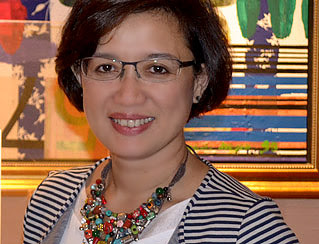Professor Susan Lim. The late professor was an active parasitologist and the leading specialist in Southeast Asia on a group of parasitic flatworms called the Monogenea. Her expertise is greatly appreciated in the fishing industry.
-
How did she do it?Professor Susan was the leading specialist in Malaysia and Southeast Asia on a group of parasitic flatworms called the Monogenea. Most monogeneans are parasites of fishes; they are a relatively large group with about 5,000 described species.
Some monogeneans are of significant economic importance because, when they occur in huge numbers, they can cause serious impact on fishes, especially food fishes cultured in farms.Through the 1980s, Susan published actively, describing many monogeneans and establishing herself as a key player in the field. In 1987, she completed her PhD, remaining on the university staff as a zoology tutor. However, her academic prowess was such that she was promoted to a lecturer in 1989, after which she never looked back, becoming a full professor by 2003.
Publishing regularly in good international journals, she became well known internationally from her papers and from her active attendance at and participation in international meetings.She described more than 100 new species, several new genera and a new family. Taking intoACCOUNT these and her specific re-assignments (together more than 200 taxa), she became the sixth most prolific monogenean worker ever (and the foremost female worker).
these and her specific re-assignments (together more than 200 taxa), she became the sixth most prolific monogenean worker ever (and the foremost female worker).
these and her specific re-assignments (together more than 200 taxa), she became the sixth most prolific monogenean worker ever (and the foremost female worker).









